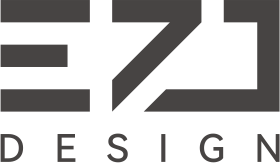
No.77-2-4, No.13 Road, Shenyang Economic And Technological Development Zone, Liaoning Province, China.
Telephone:+86-159 40213762
No.77-2-4, No.13 Road, Shenyang Economic And Technological Development Zone, Liaoning Province, China. +86-159 40213762 [email protected]
Art works are for people to appreciate, have relevance and need to be created;
The design work is for people to use, has a wide range, has its practical function;
Sign design is a set of systematic design process, with visual, functional, instructive, illustrative, practical, the image of the project system to play the role of the finishing touch.
The concept of sign modelling
1. Modelling: the form of expression of the object, create, draw the appearance of the object
2. Form: the appearance of the image, influence
3. Texture: the quality of the material, visual experience
4. Volume: size, three-dimensional concepts
5. Aesthetics: colour, visual perception
6. Value: the cost, the embodiment of the cost, image value
7. Consumer: functional expression
8. Commissioning party: cost-effectiveness, effect
9. Designer: all-round design concept performance
10. Managers: practicality, ease of maintenance
11. Environment: whether coordination, project environment embellishment
12. Users: convenience, no visual pollution
The basis of sign modelling design
1. Basic knowledge of design: plane composition, three-dimensional composition, art design.
2. Knowledge of related industries
3. Demand of social development
4. Changes in customer appreciation and acceptance awareness
5. Selection of reference materials
6. Customers' needs
7.Market positioning
8. Safety of modelling
9. Adaptability of the environment
10. Platform for co-operation
11.Designers think differently
12.Accept different opinions
13.Firming up one's own analysis and judgement
14. Inspiration of design
15.Difference between indoor and outdoor
16.Material analysis
17.Regionality
18.Ethnicity
19.Universal Design
20.Timeliness
21.Environment and atmosphere of innovation
22.Freedom of innovation
The process of sign modelling design
1.Customer data analysis
2.Points of signage system planning
3.Analysis of market demand
4. Safety analysis of signage structure
5. Research and analysis of production process
6.Analysis of production cost
7.Analysis of processing technology and equipment
8.Analysis of transport and installation site environment
9. Operability of signage modelling
10.Conventional way of thinking
11.Jumping thinking collision
12.Perception of site environment
13.Standard requirements of related industries
14.Proportion of signage use population
15.Intermittent work
16.Complementarity of multiple projects operating at the same time
17. Production of small samples of sign modelling 18. Innovations in project visits
Ideas for sign modelling design
1. Changes in design consciousness
2. Adjustment of design sequence
3. Optimisation of the design team
4. Comparison of design materials
5.Sharing of design programme
6. Self-denial of the transposition of thinking
7. Preferences of design solutions
Design techniques
1. Eye observation
2.Brain thinking
3.Hand drawing expression
4.Computer technology
5.Clear planning of design process
6.Designer's design sharing seminar
Methods of logo modelling design
1.Changes in designers' concepts
2.Demand analysis of traditional concepts
3.Designers think differently
4.Extension of design style traditionality
5.Social investigation of the project
6.Innovation seeking quality and shape difference
7. Drawing presentation techniques
8. Use of computer technology
9. Application of hand-drawing techniques
10. Handmade logo modelling samples
11. Other projects to learn from the play
12.Reflection mechanism of problematic signs
13.Equal scale paper sample observation
14.Field environment simulation
15.Looking for others' opinions